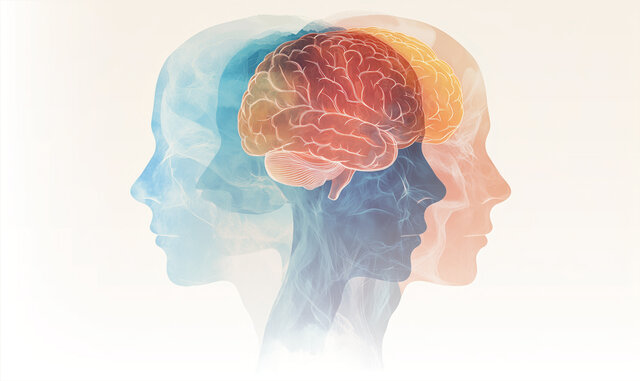Panel discussion on...
Cognitive health
Welcome in the world of alternative meat: analytical challenges and perspectives

Branded Ingredients Answer Expanding Consumers’ Cognitive-Support Needs
The very idea of losing one’s mental faculties is one of the most fearsome and commonly shared by middle-aged adults. However, younger adults now view their cognitive abilities as potential superpowers to win at work and play (e.g., gaming).
Several market research reports see the cognitive health supplements category experiencing significant global growth. This growth is driven by an aging population and an increasing demand from younger consumers seeking mental clarity, focus, and enhanced performance.
Future Market Insights’ report estimated sales in this category to have reached approximately $9 billion in 2023. It is expected to attain a CAGR of 13.3% to reach a valuation of $16.8 billion by 2033. According to Nutrition Business Journal’s Annual Condition-Specific Report 2024, the category is predicted to remain in the top three until 2027, as it now attracts consumers who aren’t “worried about losing [cognitive] abilities but, instead, wants to gain them.” The brain-support category is also blending into the sports nutrition category as athletes seek a mental competitive advantage.
An AARP survey reveals that nearly a quarter of US adults aged 18 and above and more than 33% of those aged 74 and older use at least one brain health support supplement, while 71% of those who take those supplements do so in the quest to maintain and/or improve memory ability, while 60% seek to maintain or improve mental and cognitive fitness.
Searches for terms like “cognitive health” and “brain health” doubled over the past five years, reflecting a broader consumer interest. A robust driver of this growth is younger and middle-aged adults also seeking supplements that reduce anxiety and stress and improve mood. More consumers now understand that stress, anxiety, and low mood impact cognitive performance.
Overall, as consumer preferences for brain support expand, this signals more opportunities for products offering cognitive enhancement and holistic brain health benefits, including stress reduction, mood support, and neuroprotection.
Science-Supported Ingredients Encourage Trust
Consumer understanding of brain health has evolved significantly in recent years, driven by a broader recognition of cognitive function’s role across all stages of life. While brain health supplements were once primarily associated with older adults concerned about cognitive decline, there has been a notable shift. Today, consumers of all ages—particularly Millennials, Gen Z, and even younger demographics—are actively seeking supplements to boost mental performance, focus, and clarity.
This shift is fueled by the pressures of modern life, such as career advancement, academic challenges, and the rise of competitive gaming and esports. As younger consumers prioritize cognitive enhancement, their understanding of brain health has expanded from memory to include improved mood, mental energy, and stress management, reflecting a more holistic approach to brain wellness.
A 2024 study exploring consumers' expectations of brain-support supplements found that shoppers—although lacking the scientific language to understand cognitive health specifics accurately—realize what brain health means and how it may benefit from supplementation. Recognized terms include optimization of cognitive abilities (e.g., processing speed), improving mental clarity and memory, reducing brain fatigue, inhibiting decline in memory function, and improving related aspects such as mindfulness and presence, mood, and mental energy, along with reducing anxiety and wandering attention (1).
Responsible branded ingredients suppliers conduct and publicize safety studies, mechanistic research, and human clinical studies to build a foundation of transparency and allow consumers to decide how they want to pursue supporting specific aspects of cognitive function and brain health.
Answering Expanding Cognitive Benefits
A central focus has been on understanding the role of nutrition-dependent epigenetic mechanisms in regulating cognitive function across the lifespan. Epigenetic modifications, such as DNA methylation and histone modification, can have long-lasting effects on cognitive function, influencing processes such as memory, learning, and mood regulation (2).
One ingredient gaining significant attention in the context of cognitive health and epigenetic regulation is S-adenosylmethionine (SAMe). SAMe is a naturally occurring compound in the body that plays a critical role in methylation reactions, which are central to regulating gene expression. Methylation is a key epigenetic mechanism that influences the function of genes involved in cognitive processes such as neurotransmitter synthesis, neural plasticity, and inflammation.
Recent studies have highlighted the potential of SAMe supplementation to support cognitive function and alleviate symptoms of age-related cognitive decline. SAMe’s role in methylation pathways is particularly relevant because it helps regulate the expression of genes involved in the synthesis of neurotransmitters like serotonin, dopamine, and acetylcholine—critical molecules for mood, memory, and cognition.
SAMe, like Gnosis by Lesaffre’s Adonat® Premium SAMe, crosses the blood-brain barrier and is thus readily available for the brain to use to promote neurological function and protect against age-related cognitive decline through reducing methylation. SAMe has been shown to promote healthy neurotransmitter synthesis, which helps improve and maintain a healthy mood (3).
SAMe increases phospholipid methylation, which plays a vital role in producing healthy neurons and regulating brain-derived neurotrophic factor (BDNF), which is involved in learning and memory. BDNF is associated with synaptic plasticity, synaptic connectivity formation, and neuronal survival (4, 5).
By supporting methylation, SAMe can help optimize brain function, balancing genetic predispositions and environmental influences to promote cognitive resilience. SAMe covers all the key areas of brain support all consumers seek – cognitive performance, preserving memory function, supporting healthy mood, and protecting against age-related cognitive decline.
Figure 1. Overlaid Representative Chromatograms for PBM (black) and Organic Beef (pink) (6).
Panelists
References and notes
- Young HA, Cousins AL, Byrd-Bredbenner C, et al. “Alignment of Consumers’ Expected Brain Benefits from Food and Supplements with Measurable Cognitive Performance Tests” Nutrients, 2024 Jun 19;16(12):1950
- Polverino A, Sorrentino P, Pesoli M, Mandolesi L “Nutrition and cognition across the lifetime: an overview on epigenetic mechanisms” Neuroscience 2021 8(4): 448–476
- Chen D, et al. A review of DNA methylation in depression. J Clin Neurosci 2017; 43:39–46.
- Yeom C-W, et al. Association of peripheral BDNF level with cognition, attention and behavior in preschool children. Child Adolesc Psychiatry Ment Health 2016; 10:10.
- Gao J, et al. S-Adenosyl Methionine and Transmethylation Pathways in Neuropsychiatric Diseases Throughout Life. Neurotherapeutics 2018; 15(1):156–75.
































